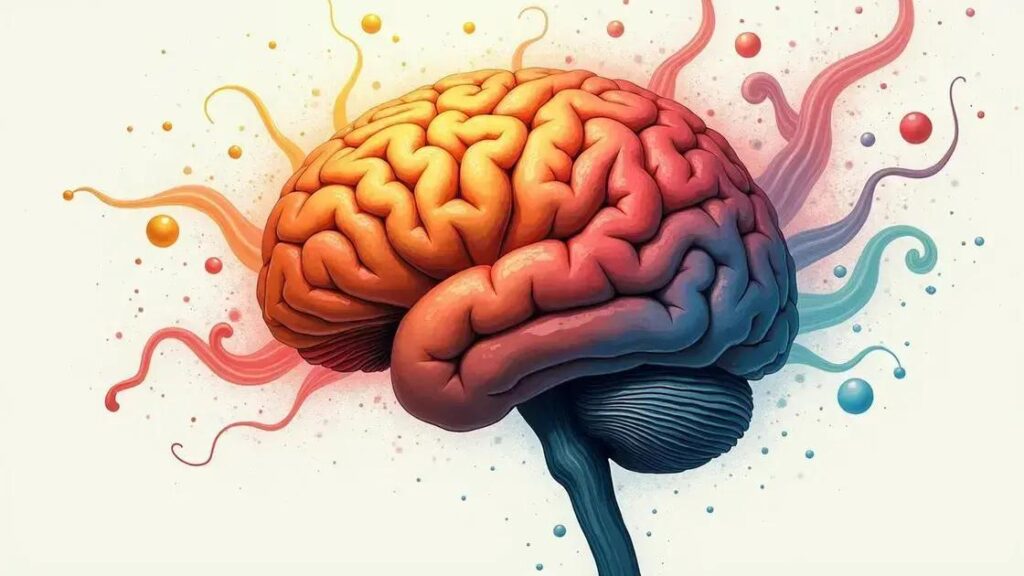The Smell Trick refers to how specific scents can evoke memories and emotions by linking them to our brain’s limbic system; practical applications include enhancing mood, improving memory retention, reducing stress, and increasing productivity through the use of targeted aromas in various settings.
The Smell Trick is a fascinating phenomenon that captivates many. Ever wondered how certain scents can influence our emotions or memories? This intriguing concept combines psychology and sensory perception, providing insights into our everyday experiences. In this article, we’ll uncover what the Smell Trick truly is, how it works, and its practical applications that you can explore in your daily life.
Understanding the Smell Trick

The Smell Trick refers to the fascinating ability of certain scents to evoke strong memories and emotional responses. This phenomenon is rooted in how our brain processes smells, making it a unique aspect of human experience. When we encounter a scent, olfactory signals travel directly to the limbic system, which is the area of the brain responsible for emotions and memories. This connection explains why a particular smell can instantly transport us back to a specific moment in time or evoke feelings of happiness or nostalgia.
History of the Smell Trick
The understanding of how scents affect our emotions dates back centuries. Ancient cultures recognized the power of fragrances in rituals and daily life. For instance, perfumes were often used in religious ceremonies to create an atmosphere, while essential oils were believed to have healing properties. Today, modern science has begun to unravel the complexities of this connection, shedding light on the mechanisms behind the Smell Trick.
Examples of the Smell Trick in Action
Have you ever walked into a bakery and immediately felt a wave of happiness? That’s the Smell Trick at work! Common examples include the smell of fresh-cut grass, which can remind us of summer days, or the aroma of a favorite dish that brings comfort and warmth. These sensory experiences can trigger a flood of memories, influencing our mood and feelings during that moment.
Why is the Smell Trick Important?
Understanding the Smell Trick is vital because it highlights the role of our senses in shaping our experiences. From marketing strategies that utilize certain scents to enhance consumer behavior, to therapeutic practices that use aromas for mental health, the implications are vast. Studies show that scents can also influence our stress levels, making it crucial to consider how our environment affects our emotional well-being.
How the Smell Trick Works

The Smell Trick works through a fascinating process involving our sense of smell and brain functions. When we inhale a scent, specialized receptor cells in our nose detect the molecules. These receptors send signals to the olfactory bulb, which is the brain’s processing center for odors. From there, the signals are transmitted to the limbic system, an area of the brain that is linked to emotions and memories.
The Role of the Limbic System
The limbic system plays a crucial part in how we experience smells. It includes structures such as the amygdala and hippocampus. The amygdala is responsible for processing emotions, while the hippocampus helps with forming new memories. This connection explains why certain smells can evoke vivid memories and strong feelings. For example, the smell of a loved one’s perfume can instantly trigger thoughts of them, bringing back feelings of comfort or nostalgia.
Scent Perception and Memory Encoding
When a scent is perceived, our brain encodes the information related to that smell alongside the emotions we feel at that moment. This is known as scent memory encoding. If you smell freshly baked cookies when visiting a grandparent’s house, your brain not only records the aroma but also links it to the comfort of family, creating a lasting memory. This is why scents can powerfully influence our mood and trigger emotions later in life.
The Science Behind Scent and Emotion
Research shows that smells can enhance or change our emotional state. For instance, pleasant scents like lavender or vanilla can reduce stress and promote relaxation, while unpleasant smells may induce anxiety. This underlines the importance of understanding the Smell Trick in various aspects of life, including therapy, marketing, and personal well-being, as it can be used to create environments that evoke desired emotional responses.
Practical Applications of the Smell Trick

The Smell Trick has various practical applications in daily life and industry. One significant application is in aromatherapy, where specific scents are used to enhance physical and mental well-being. For instance, lavender is known for its calming effects, helping to relieve stress and anxiety. By using essential oils through diffusers or massage oils, people can create a relaxing environment that promotes better mental health.
Marketing and Retail
Many businesses utilize the Smell Trick to attract customers and enhance their shopping experience. Retailers often use pleasant scents to create a welcoming atmosphere. Research shows that stores with appealing aromas can increase sales by making shoppers feel more relaxed and comfortable. For example, coffee shops may use the smell of freshly brewed coffee to draw in customers and encourage them to make a purchase.
Memory and Learning
The Smell Trick can also be applied in educational settings. Using certain scents while studying can help students retain information better. For instance, a student might burn a particular scented candle while studying and then light it again during an exam. This can trigger their memory of the study session, making recall easier. Schools and educators can incorporate this technique to help improve learning outcomes.
Therapeutic Uses
In therapy, scents are often used to create specific emotional responses and aid mental health treatment. Clinicians might employ scents in sessions to help clients relax or trigger positive memories. By integrating smells with therapeutic practices, therapists can enhance the overall treatment experience. This application shows the versatility and power of the Smell Trick in fostering emotional well-being.
Exploring the Benefits of the Smell Trick

The Smell Trick offers numerous benefits that impact our physical and emotional well-being. One key advantage is its ability to enhance mood. Certain scents, such as citrus or peppermint, can uplift spirits and create feelings of happiness. Incorporating these scents into daily routines, like using candles or essential oils, can significantly improve overall mental health.
Memory Improvement
Another benefit of the Smell Trick is its impact on memory. Studies show that smells can enhance memory recall. When we relate a specific scent to an event, we create a strong mental link. This helps us remember important details more effectively. Using certain scents during study sessions can aid in learning and retention, making them useful tools for students.
Stress Reduction
Many people use scents for stress relief. Aromatherapy is a popular method of employing the Smell Trick to relax the mind and body. Scents like lavender, chamomile, and sandalwood are known for their calming effects. By diffusing these scents in homes, workplaces, or therapy sessions, individuals can create peaceful environments that lessen anxiety and tension.
Improved Focus and Productivity
The Smell Trick can also boost focus and productivity. Scents such as rosemary and eucalyptus are believed to increase concentration and alertness. Having these scents in workspaces can lead to improved performance. This employs the Smell Trick to help individuals stay motivated and attentive during tasks.
In Summary: The Power of the Smell Trick
The Smell Trick reveals fascinating connections between scents, emotions, and memories, affecting our daily lives in many ways.
From enhancing mood and improving memory to reducing stress and increasing productivity, the benefits of utilizing scents are profound. Practical applications in areas like therapy, marketing, and education highlight its versatility.
By consciously incorporating specific scents into our environments, we can harness the Smell Trick to foster well-being and improve our experiences. Embracing this powerful tool has the potential to enhance not only personal health but also our interactions and productivity in various settings.
Therefore, take a moment to explore the world of smells and their impact on your life.
FAQ – Frequently Asked Questions about the Smell Trick
What is the Smell Trick?
The Smell Trick refers to the ability of certain scents to evoke strong memories and emotional responses, linking our sense of smell to our emotions and experiences.
How does the Smell Trick work?
When we inhale a scent, receptors in our nose send signals to the olfactory bulb and limbic system in our brain, which processes emotions and memories.
What are some practical applications of the Smell Trick?
The Smell Trick can be applied in aromatherapy, marketing, education, and therapy to enhance mood, improve memory, reduce stress, and boost productivity.
How can scents improve my mood?
Certain scents like citrus and peppermint are known to uplift spirits and create feelings of happiness, making them useful for enhancing daily routines.
Can smells really help with memory retention?
Yes, associating specific scents with study sessions can improve memory recall, making it easier to remember important details.
What are effective scents for reducing stress?
Scents such as lavender, chamomile, and sandalwood are known for their calming effects and can be used in aromatherapy to help relieve stress.













